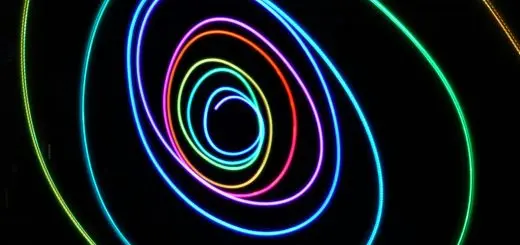Wildlife Photography Tips for Beginners

Looking for more amazing products? Check out our online store and explore our collection here! Happy shopping!
Before diving in, please note: This post is for informational purposes only. If you’d like to know more about how we approach topics, feel free to check out our friendly Disclaimer Page.
Hey there, amazing readers! 
We’re committed to delivering quality posts, and your support (even just sticking around despite the ads) means everything to us. So, bear with us, and thanks for helping us keep the good vibes rolling. Now, on to the fun stuff!
TRANSLATE BUTTON AT THE END OF THE ARTICLE
A Quick Overview
Wildlife photography is a popular and rewarding hobby for many nature enthusiasts.
Capturing the beauty and behavior of wild animals in their natural habitat can be a thrilling experience.
However, getting started in wildlife photography can be a daunting task for beginners.
From choosing the right camera gear to mastering composition techniques, there are many aspects to consider when embarking on this exciting journey.
In this article, we will provide you with essential tips and tricks to help you kickstart your wildlife photography adventure and improve your skills.
Introduction to Wildlife Photography
Wildlife photography involves capturing images of animals in their natural environment.
It requires patience, dedication, and a keen eye for detail.
The goal of wildlife photography is to convey the beauty and essence of wild animals while respecting their habitat.
As a beginner, it’s essential to understand the basics of photography, such as composition, lighting, and camera settings.
Developing these foundational skills will help you capture stunning images of wildlife.
Choosing the Right Camera Gear
When it comes to wildlife photography, having the right camera gear is crucial.
A digital single-lens reflex (DSLR) camera or a mirrorless camera with interchangeable lenses is ideal for capturing high-quality images.
Invest in a telephoto lens with a long focal length to get close-up shots of animals from a safe distance.
It’s also essential to have a sturdy tripod to keep your camera steady while shooting in challenging conditions.
Additionally, consider carrying extra batteries and memory cards to ensure you never miss a shot.
Understanding Wildlife Behavior
To capture compelling wildlife images, you must understand the behavior of the animals you are photographing.
Researching the species you want to photograph can help you anticipate their movements and get the perfect shot.
Patience is key when photographing wildlife, as animals may not always behave predictably.
By observing and studying their behavior, you can increase your chances of capturing unique and captivating images.
Selecting the Perfect Location
Choosing the right location is crucial for successful wildlife photography.
Look for national parks, nature reserves, or wildlife sanctuaries where you can find a variety of species to photograph.
Consider the time of day and season when planning your shoot, as different animals may be more active during certain times.
Remember to respect the wildlife and their environment by following park rules and regulations.
Using Natural Light to Your Advantage
Lighting plays a significant role in wildlife photography.
The golden hours of sunrise and sunset provide soft, warm light that can enhance your images.
Avoid shooting in harsh midday sun, as it can create harsh shadows and washed-out colors.
Experiment with backlighting and side lighting to create depth and drama in your photos.
Remember to be mindful of the direction of light and adjust your position accordingly for the best results.
Mastering Composition Techniques
Composition is key to creating visually appealing wildlife images.
Use the rule of thirds to place your subject off-center and create a more dynamic composition.
Experiment with different angles and perspectives to add interest to your photos.
Incorporate leading lines, framing, and negative space to draw the viewer’s eye to the subject.
Don’t be afraid to experiment and try new techniques to create captivating wildlife images.
Getting Close Safely
Getting close to wild animals to capture intimate shots can be challenging and potentially dangerous.
It’s essential to respect the animals’ space and not disturb their natural behavior.
Use a telephoto lens to get close-up shots from a safe distance without causing harm to the animals or yourself.
Avoid approaching animals too closely or making sudden movements that could frighten them.
Remember that your safety and the well-being of the wildlife should always come first.
Patience is Key in Wildlife Photography
Wildlife photography requires a great deal of patience and perseverance.
Animals may not always cooperate or be in the perfect position for a shot.
Be prepared to spend hours waiting for the right moment to capture a compelling image.
Stay alert and observant, as wildlife behavior can be unpredictable.
Remember that patience is rewarded in wildlife photography, and the more time you spend in the field, the better your chances of capturing stunning images.
Adjusting Camera Settings
Understanding and adjusting your camera settings is essential for achieving the best results in wildlife photography.
Use a fast shutter speed to freeze the motion of fast-moving animals and avoid blurry images.
Adjust your aperture to control depth of field and focus on your subject while blurring the background.
Experiment with different ISO settings to achieve the right exposure in varying lighting conditions.
Practice adjusting your camera settings to become more comfortable and confident in capturing wildlife images.
Capturing Action Shots
Wild animals are often in motion, making it challenging to capture action shots.
To freeze the action and capture sharp images, use a fast shutter speed and continuous shooting mode.
Anticipate the animal’s movements and be ready to press the shutter button at the right moment.
Experiment with panning techniques to create dynamic images with a sense of movement.
Practice capturing action shots to improve your skills and capture stunning wildlife images.
Post-Processing Tips for Beginners
Post-processing is an essential step in wildlife photography to enhance your images and bring out their full potential.
Use editing software like Adobe Lightroom or Photoshop to adjust exposure, contrast, and color balance.
Crop your images to improve composition and remove distractions.
Experiment with different filters and effects to add a creative touch to your photos.
Remember not to over-edit your images and keep them looking natural and true to life.
Respecting Wildlife and the Environment
As a wildlife photographer, it’s essential to respect the animals and their natural environment.
Avoid disturbing or harassing wildlife to get a shot, as this can harm the animals and disrupt their behavior.
Follow park regulations and guidelines to ensure the well-being of the wildlife and the conservation of their habitat.
Be mindful of your impact on the environment and take care to leave no trace while photographing wildlife.
By respecting the wildlife and the environment, you can help protect and preserve these precious resources for future generations.
Conclusion
Embarking on a wildlife photography journey as a beginner can be an exciting and rewarding experience.
By following the tips and techniques outlined in this article, you can improve your skills and capture stunning images of wild animals in their natural habitat.
Remember to choose the right camera gear, understand wildlife behavior, select the perfect location, and use natural light to your advantage.
Mastering composition techniques, getting close safely, and practicing patience are essential aspects of wildlife photography.
Adjusting camera settings, capturing action shots, and post-processing your images can help enhance your photos.
Lastly, always remember to respect wildlife and the environment while enjoying the beauty of nature through your lens.
Happy shooting!

The Enlightenment Journey is a remarkable collection of writings authored by a distinguished group of experts in the fields of spirituality, new age, and esoteric knowledge.
This anthology features a diverse assembly of well-experienced authors who bring their profound insights and credible perspectives to the forefront.
Each contributor possesses a wealth of knowledge and wisdom, making them authorities in their respective domains.
Together, they offer readers a transformative journey into the realms of spiritual growth, self-discovery, and esoteric enlightenment.
The Enlightenment Journey is a testament to the collective expertise of these luminaries, providing readers with a rich tapestry of ideas and information to illuminate their spiritual path.
Our Diverse Expertise
While our primary focus is on spirituality and esotericism, we are equally passionate about exploring a wide range of other topics and niches 

To ensure we provide the most accurate and valuable insights, we collaborate with trusted experts in their respective domains 
Our blog originally focused on spirituality and metaphysics, but we’ve since expanded to cover a wide range of niches. Don’t worry—we continue to publish a lot of articles on spirituality! Frequently visit our blog to explore our diverse content and stay tuned for more insightful reads.
Hey there, amazing reader! 
Check out our store here and take a peek at some of our featured products below! Thanks for being awesome!











